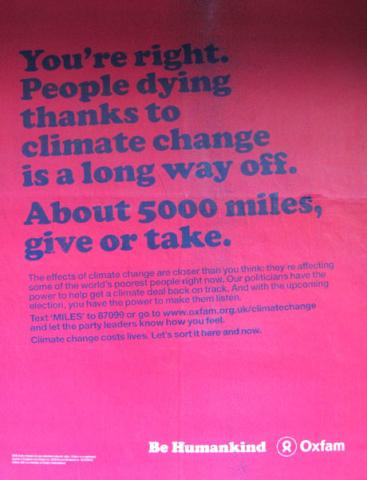The United Nations Climate Change talks kicked off yesterday in Cancun. For many, the mood began much more sombrely than last year. Copenhagen attracted celebrity clout, world leader buzz, and a sense of optimism for a binding agreement. For all Copenhagen promised, however, those who hoped for a fair and binding global deal left empty handed.
Along with analysts, pundits and the blogosphere, the U.S., UK and EU are already downplaying the chances of a deal being reached in the next fortnight. And as Desmogblog reported today, those fears may not be in vain with threats that the U.S. may pull out of the talks early.
The talks during the next two weeks are going to focus largely on forests and finance, but also on questions about the legal status of a future agreement and emissions targets, which are expected to be tackled beginning next week when ministers arrive.
The sense of general pessimism around the talks has led some to question the viability of the UN Framework Convention on Climate Change (UNFCCC) to deliver, and has led others to manufacture doubt over the scientific basis for action. A new report released by Oxfam argues that despite the disconsolate atmosphere, a year of extreme weather conditions demonstrate more than ever that a binding climate agreement under the UN auspices is imperative. The report, More than ever: climate talks that work for those that need them most, presents the weather events that have devastated much of the planet in the last year, and the even more harrowing costs of climate inaction.
According to the report, at least 21,000 people died due to weather-related disasters in the first nine months of this year – more than twice the number for the whole of 2009. “This year is on course to experience more extreme-weather events than the 10-year average of 770. It is one of the hottest years ever recorded,” wrote Tim Gore, Oxfam’s EU climate change policy adviser and report’s author.
“This year has seen massive suffering and loss due to extreme weather disasters. This is likely to get worse as climate change tightens its grip. The human impacts of climate change in 2010 send a powerful reminder why progress in Cancún is more urgent than ever.”
While many continue to ride a feeling of foreboding about the chances of a binding agreement this year in Cancun, the report notes (and aptly so) that now is not the time to walk away from the UN process. For millions of poor people around the world – those hit first and hardest by a crisis they did least to cause – a fair and safe deal to tackle climate change is not only urgent, but a matter of life and death.
Oxfam’s report notes some harrowing stats on the cost of inaction. Between 2010 and 2050, the World Bank estimates that developing countries will need between $70 billion and $100 billion per year to adapt to climate change. Yet every dollar that is spent on adaptation could save $60 in avoided losses. And with a sense of foreboding already in the air in Cancun, it is important to remember that the cost of inertia will bear disproportionately on developing countries. According to the World Bank, developing countries will bear 75-80% of costs of harmful climate change.
Gore argues that “Cancun will not deliver everything that a global response to climate change should be. But it can deliver outcomes that will benefit poor people. One of the most important achievements would be a fair climate fund because this would also help to re-build trust and put the talks back on track.”
The report also examines some of the countries to watch this next fortnight. From Pakistan to China to Malawi, these countries have different strengths, experience, and perspectives that they will bring to the talks.
To read on, download a copy of Oxfam’s report below.
Subscribe to our newsletter
Stay up to date with DeSmog news and alerts







